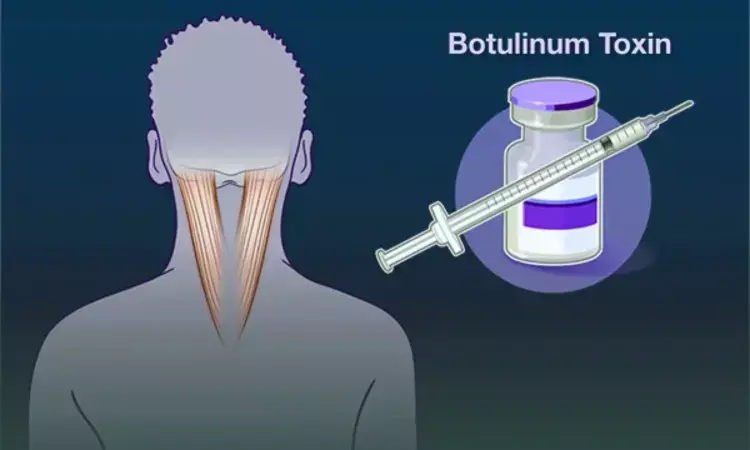- Home
- Medical news & Guidelines
- Anesthesiology
- Cardiology and CTVS
- Critical Care
- Dentistry
- Dermatology
- Diabetes and Endocrinology
- ENT
- Gastroenterology
- Medicine
- Nephrology
- Neurology
- Obstretics-Gynaecology
- Oncology
- Ophthalmology
- Orthopaedics
- Pediatrics-Neonatology
- Psychiatry
- Pulmonology
- Radiology
- Surgery
- Urology
- Laboratory Medicine
- Diet
- Nursing
- Paramedical
- Physiotherapy
- Health news
- Fact Check
- Bone Health Fact Check
- Brain Health Fact Check
- Cancer Related Fact Check
- Child Care Fact Check
- Dental and oral health fact check
- Diabetes and metabolic health fact check
- Diet and Nutrition Fact Check
- Eye and ENT Care Fact Check
- Fitness fact check
- Gut health fact check
- Heart health fact check
- Kidney health fact check
- Medical education fact check
- Men's health fact check
- Respiratory fact check
- Skin and hair care fact check
- Vaccine and Immunization fact check
- Women's health fact check
- AYUSH
- State News
- Andaman and Nicobar Islands
- Andhra Pradesh
- Arunachal Pradesh
- Assam
- Bihar
- Chandigarh
- Chattisgarh
- Dadra and Nagar Haveli
- Daman and Diu
- Delhi
- Goa
- Gujarat
- Haryana
- Himachal Pradesh
- Jammu & Kashmir
- Jharkhand
- Karnataka
- Kerala
- Ladakh
- Lakshadweep
- Madhya Pradesh
- Maharashtra
- Manipur
- Meghalaya
- Mizoram
- Nagaland
- Odisha
- Puducherry
- Punjab
- Rajasthan
- Sikkim
- Tamil Nadu
- Telangana
- Tripura
- Uttar Pradesh
- Uttrakhand
- West Bengal
- Medical Education
- Industry
Injection Botulinum Toxin reduces essential or isolated head tremor severity: NEJM

France: Injections of botulinum toxin type A into each splenius capitis muscle were more effective than placebo in reducing the severity of essential or isolated head tremor at 18 weeks, the Btx-HT trial has revealed.
The injection of the botulinum toxin failed to reduce the severity at 24 weeks when the effects of injection might be expected to wane and were associated with adverse events. The study findings were published in The New England Journal of Medicine.
"On the primary outcome, 31% of patients with head tremors in the botulinum toxin group improved by at least 2 points on the Clinical Global Impression of Change (CGI) scale at 18 weeks, versus 9% in the placebo group (relative risk 3.37)," the researchers reported.
Scores on the CGI scale can vary from 3 to -3, with 3 being "very much improved" and -3 being "very much worse." CGI scores at weeks 6 and 12 supported the primary outcome of head tremor improvement, but scores at week 24 did not.
Local injections of botulinum toxin type A have been used for treating essential head tremors but have not been extensively studied in randomized trials. Therefore, Ana Marques, the Hôpital Gabriel Montpied, CHU Clermont-Ferrand, France, and colleagues conducted Btx-HT, a multicenter, double-blind, randomized trial enrolling adult patients with essential or isolated head tremors. Out of 120 patients, 117 were assigned in a ratio of 1:1 to receive botulinum toxin type A (n=62) or placebo (n=55). During week 12, twelve patients in the botulinum toxin group and 2 patients in the placebo group did not receive injections.
Botulinum toxin or placebo was injected into each splenius capitis muscle on the day of randomization (day 0) and during week 12. The primary outcome of the study was determined as an improvement by at least 2 points on the CGI scale at week 6 after the second injection (week 18 after randomization). Secondary outcomes included changes from baseline in tremor characteristics to weeks 6, 12, and 24.
The study led to the following findings:
- The primary outcome — improvement by at least 2 points on the CGI scale at week 18 — was met by 31% of the patients in the botulinum toxin group as compared with 9% of those in the placebo group (relative risk, 3.37).
- Analyses of secondary outcomes at 6 and 12 weeks but not at 24 weeks were generally supportive of the primary outcome analysis.
- Adverse events occurred in approximately half the patients in the botulinum toxin group and included head and neck pain, posterior cervical weakness, and dysphagia.
"Our trial had stringent requirements for outcome assessment, enrollment, and injection technique, and about 40% and 30% of the patients in the botulinum toxin group at weeks 6 and 18, respectively, had improvement by at least 2 points on the CGI scale," the researchers wrote.
Reference:
Marques A, Pereira B, Simonetta-Moreau M, Castelnovo G, De Verdal M, Fluchère F, Laurencin C, Degos B, Tir M, Kreisler A, Blanchet-Fourcade G, Guehl D, Colin O, Poujois A, Sangla S, Tatu L, Derost P, Gayraud D, Tranchant C, Amarantini D, Devos D, Rascol O, Corvol JC, Durif F, Rieu I; Btx-HT Study Group. Trial of Botulinum Toxin for Isolated or Essential Head Tremor. N Engl J Med. 2023 Nov 9;389(19):1753-1765. doi: 10.1056/NEJMoa2304192. PMID: 37937777.
Dr Kamal Kant Kohli-MBBS, DTCD- a chest specialist with more than 30 years of practice and a flair for writing clinical articles, Dr Kamal Kant Kohli joined Medical Dialogues as a Chief Editor of Medical News. Besides writing articles, as an editor, he proofreads and verifies all the medical content published on Medical Dialogues including those coming from journals, studies,medical conferences,guidelines etc. Email: drkohli@medicaldialogues.in. Contact no. 011-43720751


